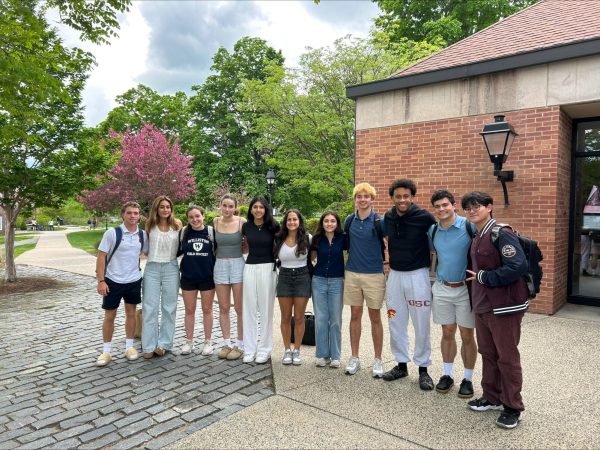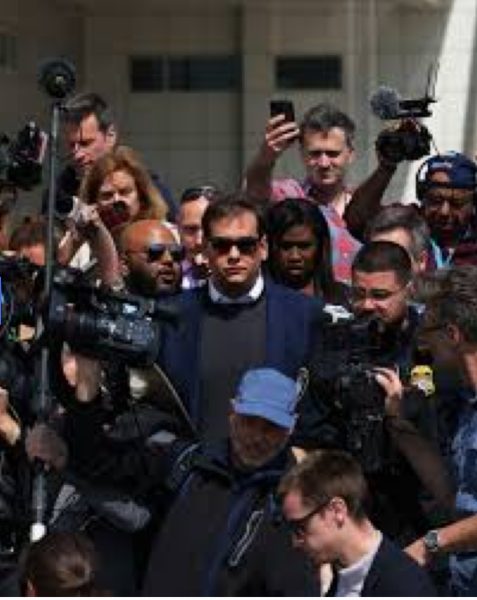President Puts Forth Israel-Palestine Peace Deal

President Trump has recently announced a historic Israeli-Palestinian peace proposal, and it has received both the praise and criticism of many.
“Our proposal provides precise, technical, solutions to make Israelis, Palestinians, and the region safer and more prosperous”, he said in a press release. “My vision presents a win-win opportunity for both sides [and] a realistic two state solution.” According to Reuters, the plan would, “[create] a Palestinian state… [and] let Israel maintain control of long-contested West Bank settlements.”
While the deal has the support of Israel’s Prime Minister Benjamin Netanyahu, as well as many Israelis and pro-Israeli groups, it has been blasted by many who support Palestine. Palestinian President Mahmoud Abbas called it “the slap of the century”- a play on the fact that Trump has called it, “the deal of the century.”
According to Reuters, details of the deal, like the proposed location of the Palestinian capital and the fact that Israel would get possession of several hotly contested Jewish communities in the West Bank and Gaza, have started to raise concerns for Palestinians. For example, the capital of the proposed Palestine state would be Abu Dis, a section of East Jerusalem, and many Palestinians would reject any such proposal that didn’t contain all of east Jerusalem. This would include the walled Old City — an area holy to Muslims, Christians, and the Jewish.
This is part of the reason this conflict is so old and so heated.
Israel was declared a state in 1948, in the wake of World War II and the Holocaust, and many Jewish Europeans and Jewish Arabians migrated there soon after. Much of this migration was motivated by the concept of Zionism, or the belief that a Jewish independent state should exist in the traditionally holy land of Judaism, according to Britannica.
More than six million Jewish people were systematically murdered by the Nazi state during the Holocaust, and in the wake of this tragedy many Jewish people celebrated the opportunity to claim land so important to their ancestors.
However, the new state was almost immediately at war with its neighbors. Israel and its Arab neighbor nations have been in conflict almost consistently ever since. The region has since been plagued by conflicts like the 6-Day War and the Yom Kippur War, and much of the tension was the result of disputed claims to shipping lanes and land. One of the most heated of these conflicts is that between Israel and Palestine.
The bad blood has existed for thousands of years, motivated mostly by religious differences, but the conflict over land heated up quickly and dramatically after the official creation of Israel as a state. Many Palestinians believe Israel was built on stolen land that should belong to Palestine, while many Israelis believe that Israel’s existence is necessary and justified.
One current junior, who wished to remain anonymous, gave her thoughts on the ugly and complicated history of the conflict to The Willistonian.
“It’s as if someone were to walk into your house, claim it, and kick you out,“ she explained. “That’s what it was like for the Palestinians.”
“Of course Palestine has [also] done some wrong,” she continued, “but how could you not when you have nowhere else to go? There’s few Palestinian families that have not seen their loved ones die in front of them.”
“It’s a circle [of violence],” said Linda Ashkenazi, ’21, from Mexico City, “I don’t know who started it. It’s a never ending story. It’s the same argument on both sides so neither one is going to win.”She was generally supportive of the plan, but not 100%. “It has a chance of working, but if [they’re] convinced it’s going to work why didn’t [they] try it before,” she said, “[However], if it’s going to bring peace, I support it completely- even if I disagree with how it was done.”
Her anonymous classmate fully agreed that peace should be the ultimate goal.
“I believe there should be peace,” she said, “[and] I think there has to be a two state solution – there’s no other way.”
Hollis is new post-grad to Williston this year, she has really enjoyed her transition into the Williston community. Hollis loved how she can learn about...











